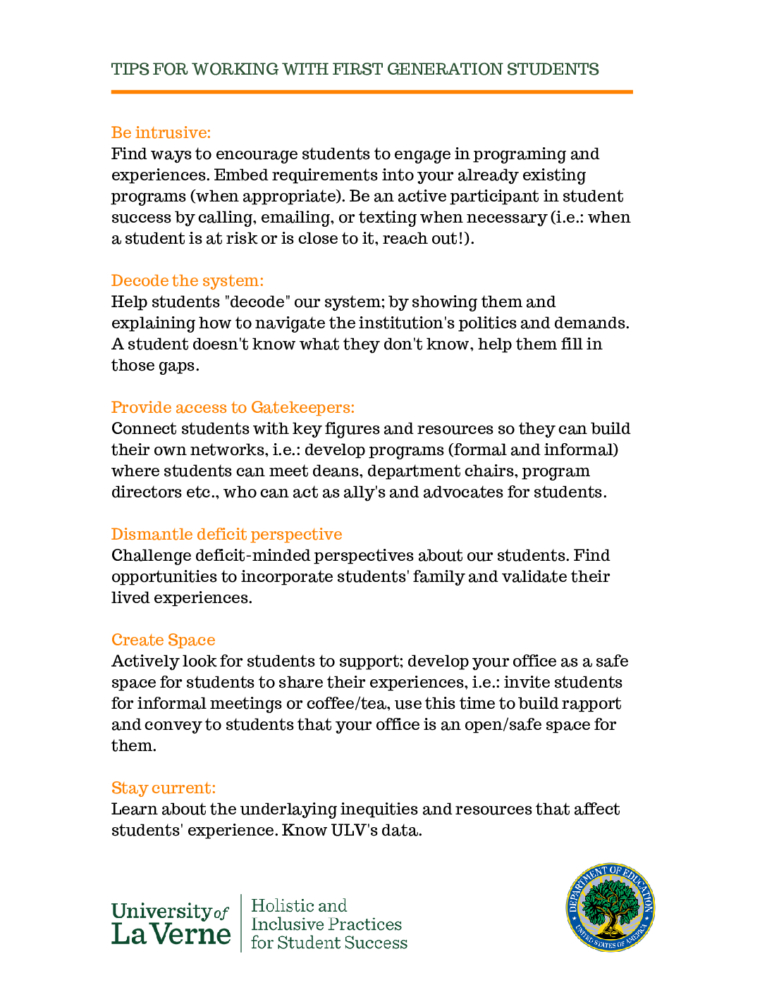 Be intrusive: Find ways to encourage students to engage in programming and experiences. Embed requirements into your already existing programs (when appropriate). Be an active participant in student success by calling, emailing, or texting when necessary (i.e., when a student is at risk or is close to it, reach out!).
Be intrusive: Find ways to encourage students to engage in programming and experiences. Embed requirements into your already existing programs (when appropriate). Be an active participant in student success by calling, emailing, or texting when necessary (i.e., when a student is at risk or is close to it, reach out!).- Decode the system: Help students “decode” our system; by showing them and explaining how to navigate the institution’s politics and demands. A student doesn’t know what they don’t know, help them fill in those gaps.
- Provide access to gatekeepers: Connect students with key figures and resources so they can build their own networks, e.g., develop programs (formal and informal) where students can meet deans, department chairs, program directors etc., who can act as allies and advocates for students.
- Dismantle deficit perspective: Challenge deficit-minded perspectives about our students. Find opportunities to incorporate students’ families and validate their lived experiences. Learn more about deficit perspective.
- Create space: Actively look for students to support; develop your office as a safe space for students to share their experiences, e.g., invite students for informal meetings or coffee/tea, use this time to build rapport and convey to students that your office is an open/safe space for them.
- Stay Current: Learn about the inequities and resources that affect students’ experiences. Know University of La Verne’s data.
If you would like additional information about this topic, contact us at title111grant@laverne.edu or (909) 448-4661.